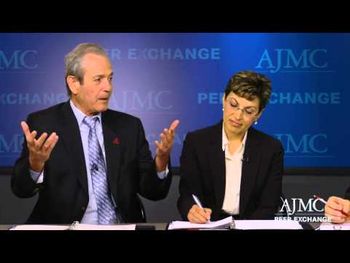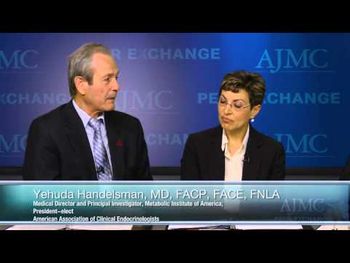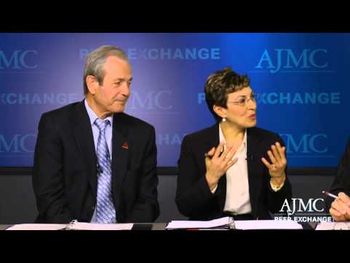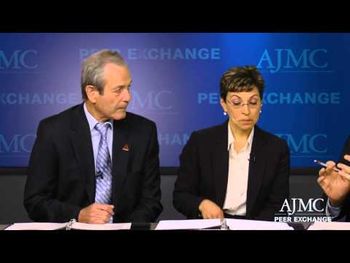
"The Value of Cancer Care and the Professional and Ethical Obligations of the Practicing Oncologist: A Debate" delved into the ethical issues raised by the economic reality of the rising costs of cancer care for the practicing oncologist.


"The Value of Cancer Care and the Professional and Ethical Obligations of the Practicing Oncologist: A Debate" delved into the ethical issues raised by the economic reality of the rising costs of cancer care for the practicing oncologist.

Specialty pharmaceuticals are currently the object of payer focus as one of the major drivers of increased pharmacy spending in 2014 and beyond.

Beginning July 1, health providers can expect to receive incentives for prescribing specific cancer treatments backed by the insurance company WellPoint. The WellPoint's innovative program will pay providers $350 per patient per month each time they choose 1 of the insurer's "preferred" cancer treatment options.

One of the biggest beneficiaries of the health law's expansion of coverage to more than 13 million people this year has been the nation's safety-net hospitals, which treat a disproportionate share of poor and uninsured people and therefore face billions of dollars in unpaid bills.

Patients with an insomnia diagnosis have higher healthcare utilization and costs than a matched control group, both before and after the diagnosis.

Surgery patients covered by Medicaid arrive at the hospital in worse health, experience more complications, stay longer and cost more than patients with private insurance, a new study has found.

Antiretroviral drugs have replaced hospitalization and other services as the most costly component of HIV care, except in patients with especially advanced HIV.

Focus on services' worth to combat soaring healthcare spending.

Every person covered by Medicare would shell out an additional $3 a month if the government agreed to pay to screen certain current and former smokers for lung cancer, a new study estimates.

















259 Prospect Plains Rd, Bldg H
Cranbury, NJ 08512
© 2025 MJH Life Sciences®
All rights reserved.
